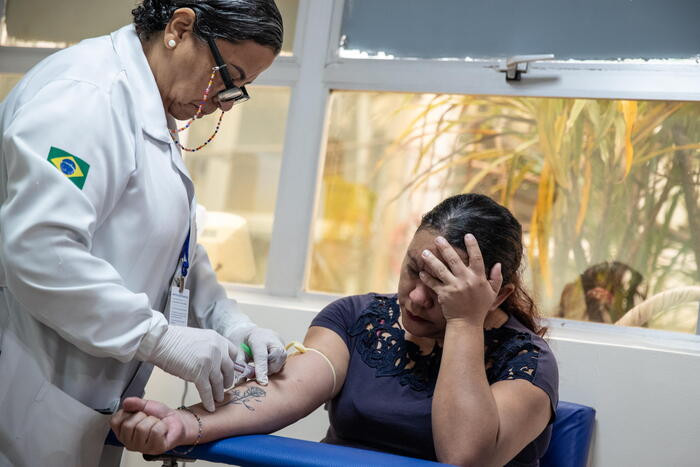Due to the global increase in dengue cases, at the disposal of the Director General, Francesco Vaia, the Maritime, Air and Border Health Offices (Usmaf-Sasn) were instructed to raise the level of alert and vigilance towards the carriers coming from and goods imported from countries where "the risk of contracting the disease is frequent and continuous".
The indications arrived at the offices with a note from the ministry.
The ministry refers to a risk map published by the American Centers of Disease Control and Prevention (https://www.cdc.gov/dengue/areaswithrisk/around-the-world.html): a long list of South American countries , Africa, Asia and the Pacific Islands.
In Brazil there is a dengue emergency with over 500 thousand cases and the situation is also worsening in Argentina where the disease has been detected in more than half of its provinces.
The International Health Regulations, we read in the document, "provide that the airport/port area and the surrounding 400 meters are kept free from sources of infection and contamination, therefore also rodents and insects".
The instruction is also given to carefully monitor the disinsection of aircraft and to evaluate the opportunity to issue orders to carry out extraordinary interventions for the surveillance of populations of vectors and other pests and for disinfestation.
Dengue fever, or simply "dengue", is a tropical infectious disease, transmitted to humans by the bite of mosquitoes.
Dengue, explains the ISS website, generally causes flu-like disorders (symptoms) but can sometimes manifest itself in a serious form, called hemorrhagic dengue, which can be fatal.
Of viral origin, the disease is caused by the dengue virus which belongs to the Arbovirus group, i.e. viruses transmitted to humans by insects, of which four types are known (DEN-1, DEN-2, DEN-3 and DEN-4 ).
Dengue is a non-contagious infectious disease because, even if humans are the main host, there is no direct contagion between humans, but transmission from person to person is only possible through insect (arthropod) vectors, which for dengue they are mosquitoes of the Aedes genus.
The virus circulates in the blood of the infected person for 2-7 days and is then picked up and transmitted to other individuals through mosquito bites.
Dengue is widespread mainly in tropical and subtropical countries, especially in urban areas, and is particularly present during and after the rainy season.
In the countries of the northern hemisphere, particularly in Europe, the disease is mainly seen in people returning from stays in tropical and subtropical areas where the disease is common (imported disease) and the increase observed in recent years is due to increased frequency of travel.
Reproduction reserved © Copyright ANSA

